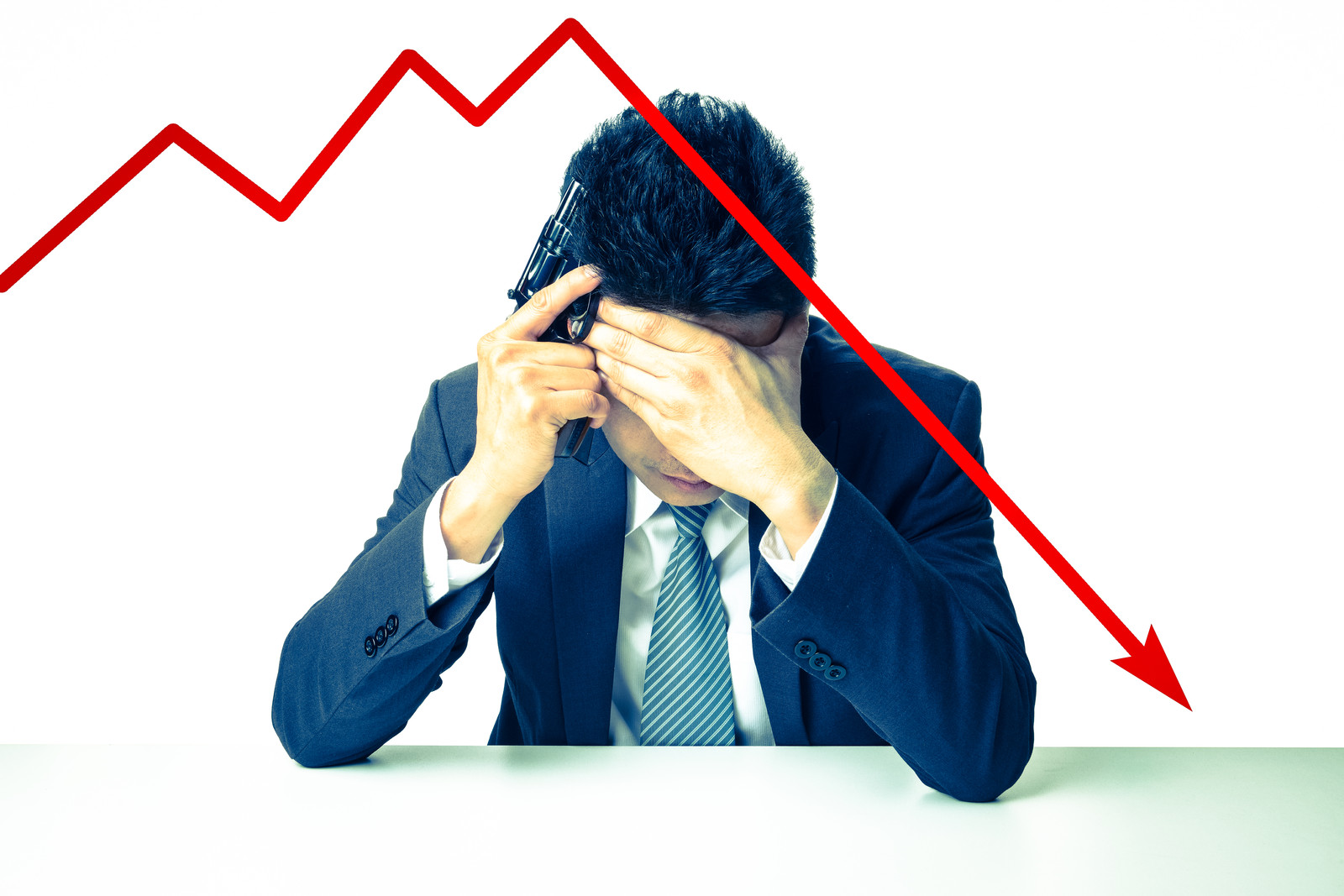Stock Market Continues Downward March
Have you been keeping track of our favorite canary-in-the-coal-mine for the economy? I refer to the current state of the stock market, of course. The last time we looked at it on Normandy Day, June 6 (How appropriate!), both the Dow Jones Industrial Average and the Standard and Poor’s 500 index were falling below their 50 day moving averages but were still above their 200 day moving averages.
Since then there has been a lot of Sturm und Drang in the markets with both indices rallying and falling several times. The current historical record of the Dow Jones Industrials ($INDU) is shown below.
 As you can see, the Dow Jones has risen above and fallen below both its 50 day moving average (the blue curve) and its 200 day moving average (the red curve) several times with the the trend definitely being downward. If we look at a similar chart for the S & P 500, as shown below the Dow Industrials chart, we see essentially the same thing, although not quite so bad. Nevertheless, it has fallen through the 200 day moving average twice and has just recently fallen through the 50 day moving average yet once again. The trend for the S & P 500 is also definitely down. Since the S & P 500 is an average over 500 stocks, a much larger sample than found with with the Dow Industrial’s 30 stocks, it is arguably a much more important statistic in giving a feel for how healthy the economy is. (By the way, I constructed these two charts for free on the website stockcharts.com. It is a good site to visit often to get data on the economy and individual companies,)
As you can see, the Dow Jones has risen above and fallen below both its 50 day moving average (the blue curve) and its 200 day moving average (the red curve) several times with the the trend definitely being downward. If we look at a similar chart for the S & P 500, as shown below the Dow Industrials chart, we see essentially the same thing, although not quite so bad. Nevertheless, it has fallen through the 200 day moving average twice and has just recently fallen through the 50 day moving average yet once again. The trend for the S & P 500 is also definitely down. Since the S & P 500 is an average over 500 stocks, a much larger sample than found with with the Dow Industrial’s 30 stocks, it is arguably a much more important statistic in giving a feel for how healthy the economy is. (By the way, I constructed these two charts for free on the website stockcharts.com. It is a good site to visit often to get data on the economy and individual companies,)
 So has the economy caught a case of economic flu, the way these two indices suggest? This is not a very simple question to answer, given the way the stock market has been decoupled from the economy’s performance by the Federal Reserve in recent years (see here and here and here and here for several reasons for the decoupling). Nevertheless there are a bunch of statistics that give a picture of an economy that is perched on the precipice of recession, or maybe even something worse. One often quoted statistic of woe is the adult participation in the workforce that is at the lowest level since the late 1970’s. There are currently approximately 6 million fewer people in the workforce that when Obama took office. Although some of these people are baby boomers retiring, many of these citizens have simply given up in finding a job.
So has the economy caught a case of economic flu, the way these two indices suggest? This is not a very simple question to answer, given the way the stock market has been decoupled from the economy’s performance by the Federal Reserve in recent years (see here and here and here and here for several reasons for the decoupling). Nevertheless there are a bunch of statistics that give a picture of an economy that is perched on the precipice of recession, or maybe even something worse. One often quoted statistic of woe is the adult participation in the workforce that is at the lowest level since the late 1970’s. There are currently approximately 6 million fewer people in the workforce that when Obama took office. Although some of these people are baby boomers retiring, many of these citizens have simply given up in finding a job.
In addition, one can find evidence that debt burdens are still weighing down on many households, even as their real incomes have decreased. How can the economy possibly become healthier when the financial state of all income groups is in such bad shape?
To all this evidence, we can add all the various ways in which the Obama administration is kicking the economy in the gut. First we can point to the bad economic effects of Obamacare. Then there is the Dodd-Frank Act oppressing all financial markets, and EPA regulations making energy more costly (See here and here and here). Then there are the plethora of other government regulations suppressing economic growth.
Thinking about all these things, what is most surprising is that the stock market has not started falling earlier, and that it is not falling a lot more precipitously than it is!
Views: 2,010





























